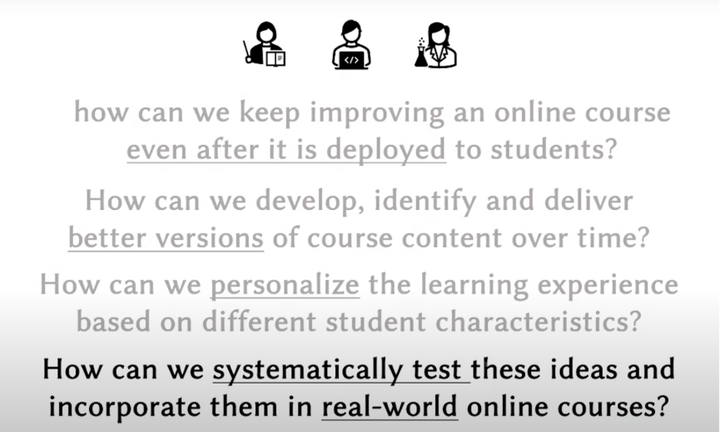 Image credit: Unsplash
Image credit: Unsplash
Abstract
The goals of this $1M competition are to modernize, accelerate, and improve the ways in which we identify effective learning tools and processes that improve learning outcomes. Why do adaptive experiments work better? 1) Better student outcomes 2) More statistical power for multiple arms 3) Better ability to serve statistical minority groups. As part of this competition, we are developing a cross-platform infrastructure that supports both traditional and adaptive experiments using MOOClets. Adaptive experiments change how often conditions are assigned as data is collected, by using increasing evidence to give a condition more frequently to future students. This can accelerate the use of data to enhance and personalize learning for future students, by integrating machine learning algorithms with statistical models and human decision-making. Our team integrates expertise in education research, experimental psychology, human-computer interaction, large-scale software development, educational data mining, statistics, and machine learning. We have collectively deployed over 150 field experiments with more than 300 000 learners from 2013 to 2022, working with over 50 instructors and 40 researchers.
#
#Slides can be added in a few ways:
#- Create slides using Academic’s #
Slides feature and link #using slides parameter in the front matter of the talk file
#- Upload an existing slide deck to static/ and link using url_slides parameter in the front #matter of the talk file
#- Embed your slides (e.g. Google Slides) or presentation video on this page using #
shortcodes.
#Further talk details can easily be added to this page using Markdown and $\rm \LaTeX$ math code.